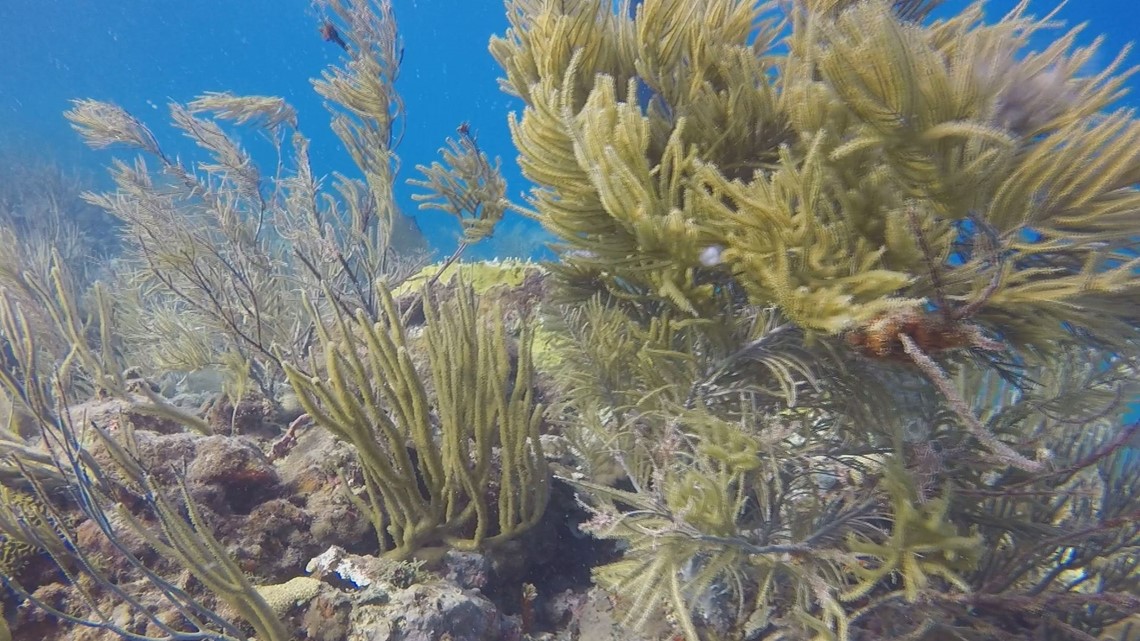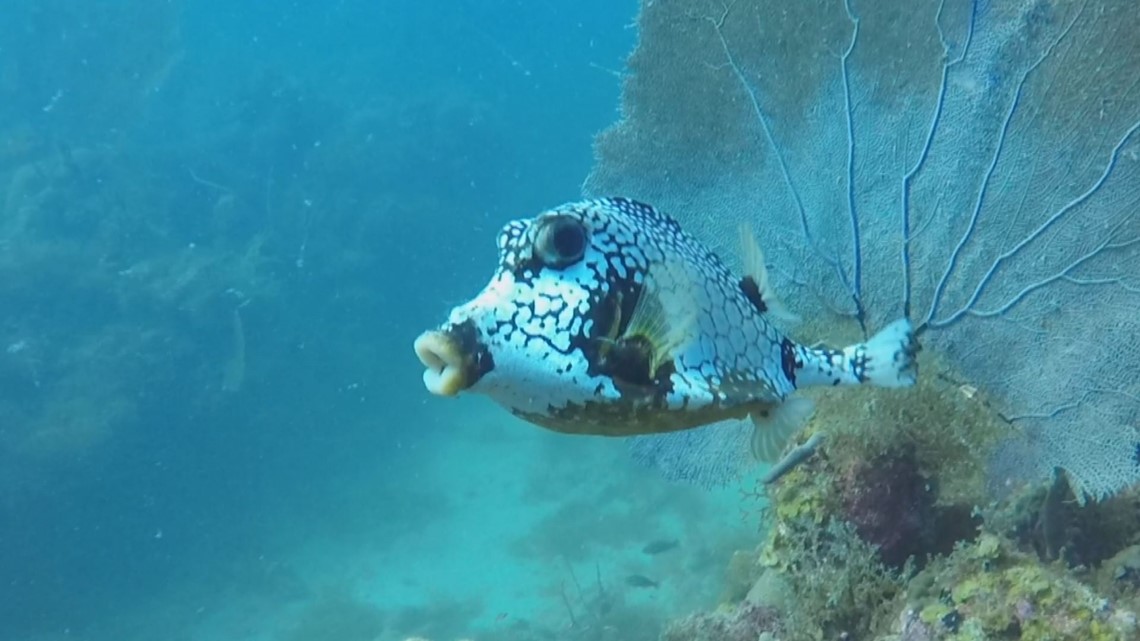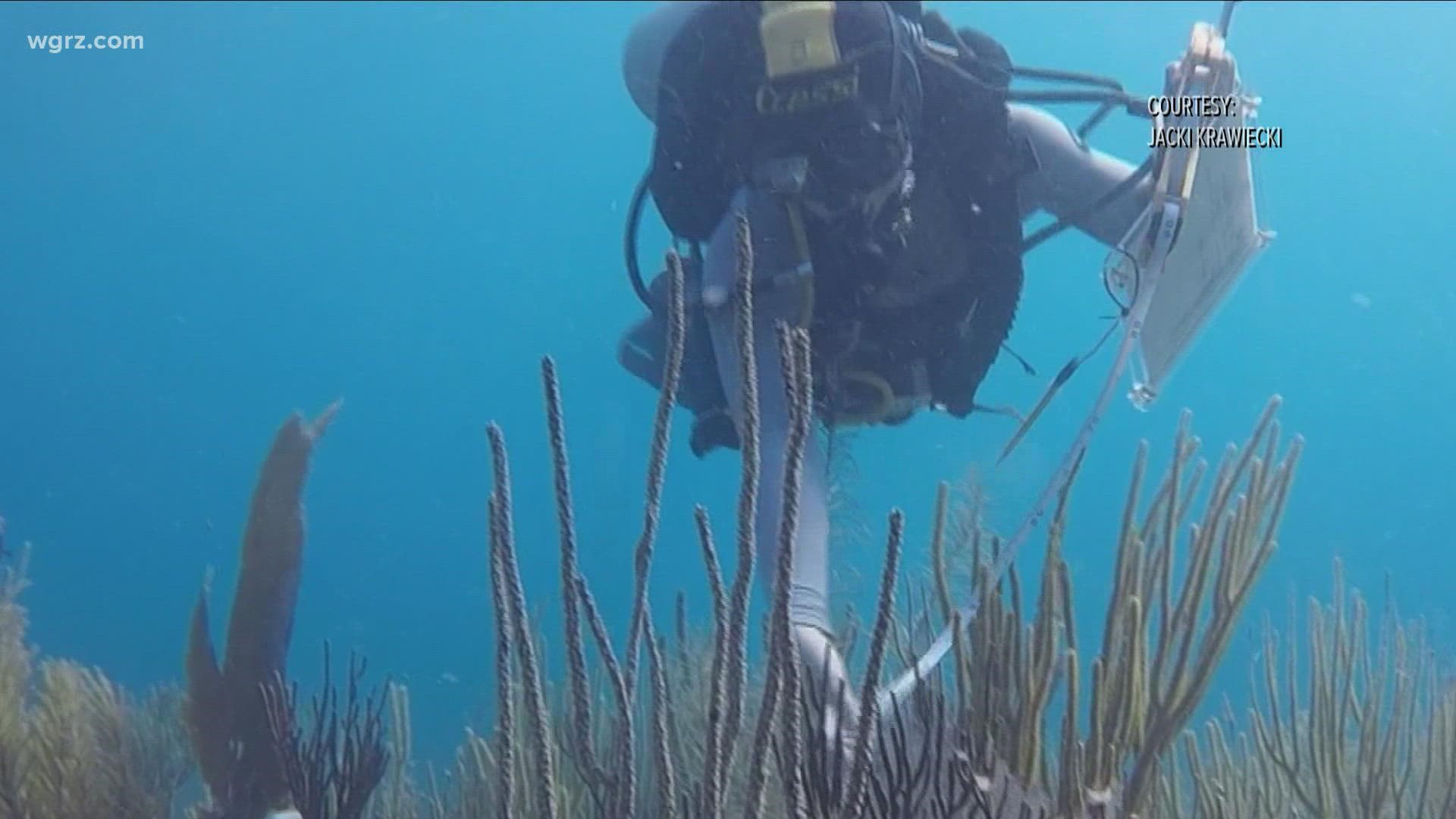BUFFALO, N.Y. — The oceans are a vast and mysterious environment. Though they cover 70% of the planet, man has only explored about 5% of that.
Angela Martinez Quintana, who received her Ph.D. at UB, has been studying ocean habitats in depth. Her research focuses on coral reefs, their impact on the environment, and their restoration.
"Especially I work with baby corals. And I am interested in understanding which environmental conditions on the reef they like to actually grow and survive on the reef."


She has logged countless hours observing reefs in the Caribbean, and she takes that research from the sea to the lab through the use of 3D digital modeling.
"Now I can go to the reef and dive for maybe one or two hours, and get pictures of one area of the reef, and then I can come to my lab, and work on my computer in those pictures to create a 3D model and that allows me to study the structure in different layers."
Coral may look like a plant, but it's classified as an animal, related to jellyfish and anemones. Reefs are made up of communities of coral, and though they occupy less than 1% of the ocean, their importance is vast as the sea itself. They support 25% of all marine life and also help to combat climate change.
"They are also able to collect CO2 from the atmosphere like the trees. So they are actually able to regulate temperature too. So if we lose them, we actually lose them, we lose a carbon sink spot, that is also going to have an effect on global warming," Quintana explains.


Coral can live for thousands of years, but their populations are in serious decline, threatened in part by human influence. Research like this will help ensure their future.
"We want to actually maintain a resource that is actually providing us resources to survive," says Quintana. "So in the end, we live on this planet, and if we destroy the resources, that we live from, that's going to affect directly us."
RELATED:

